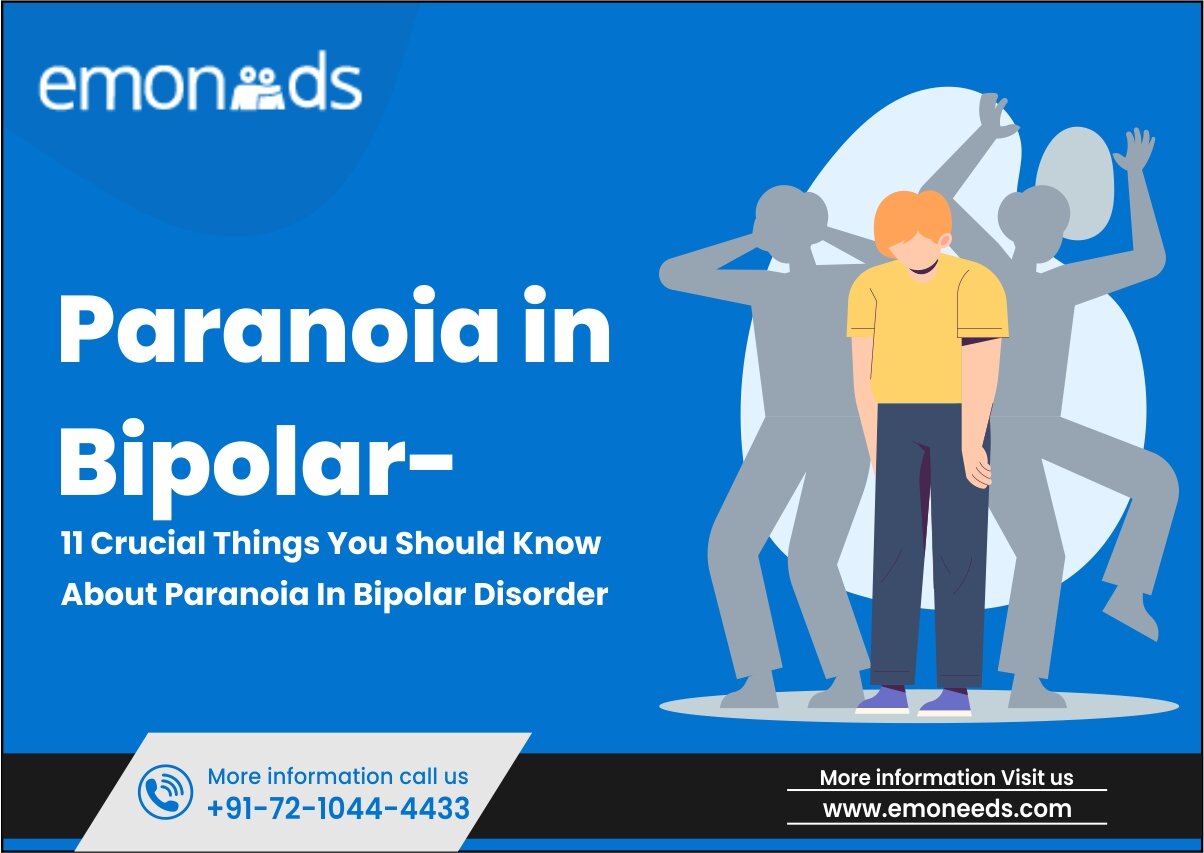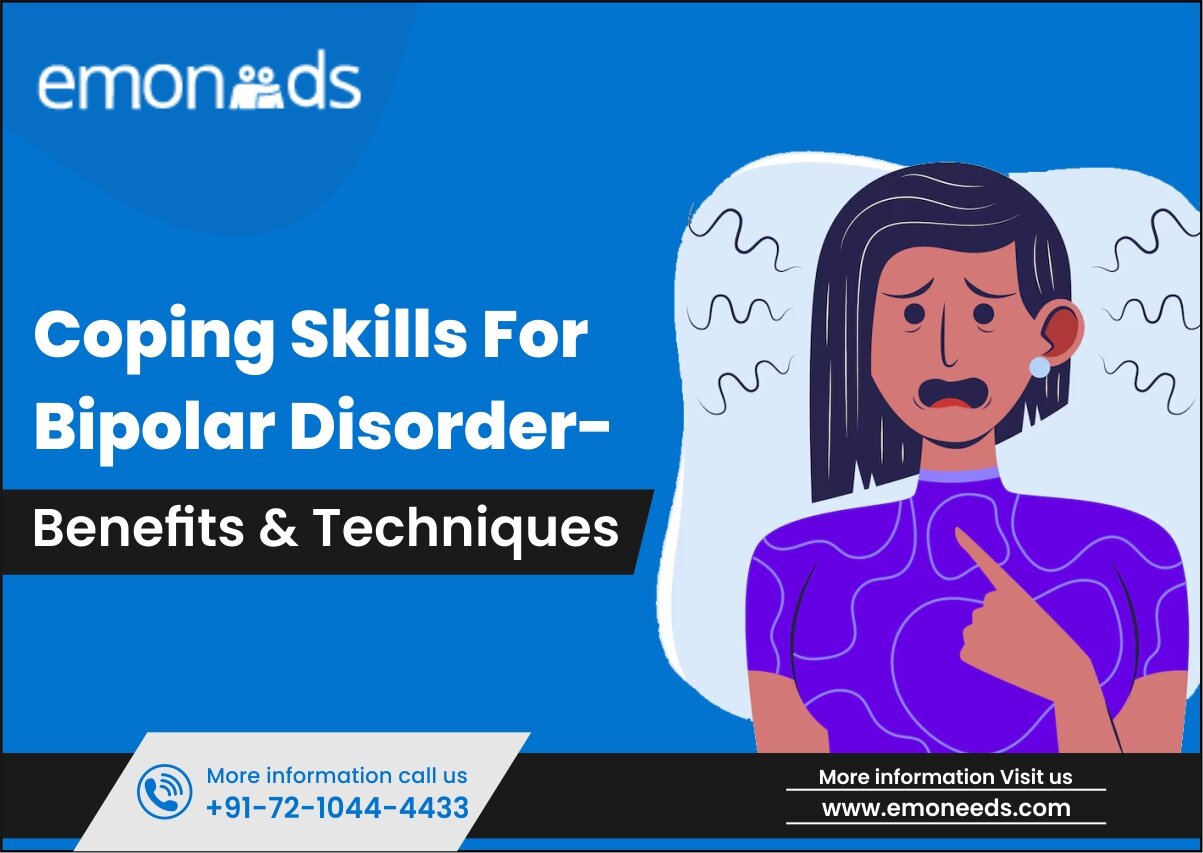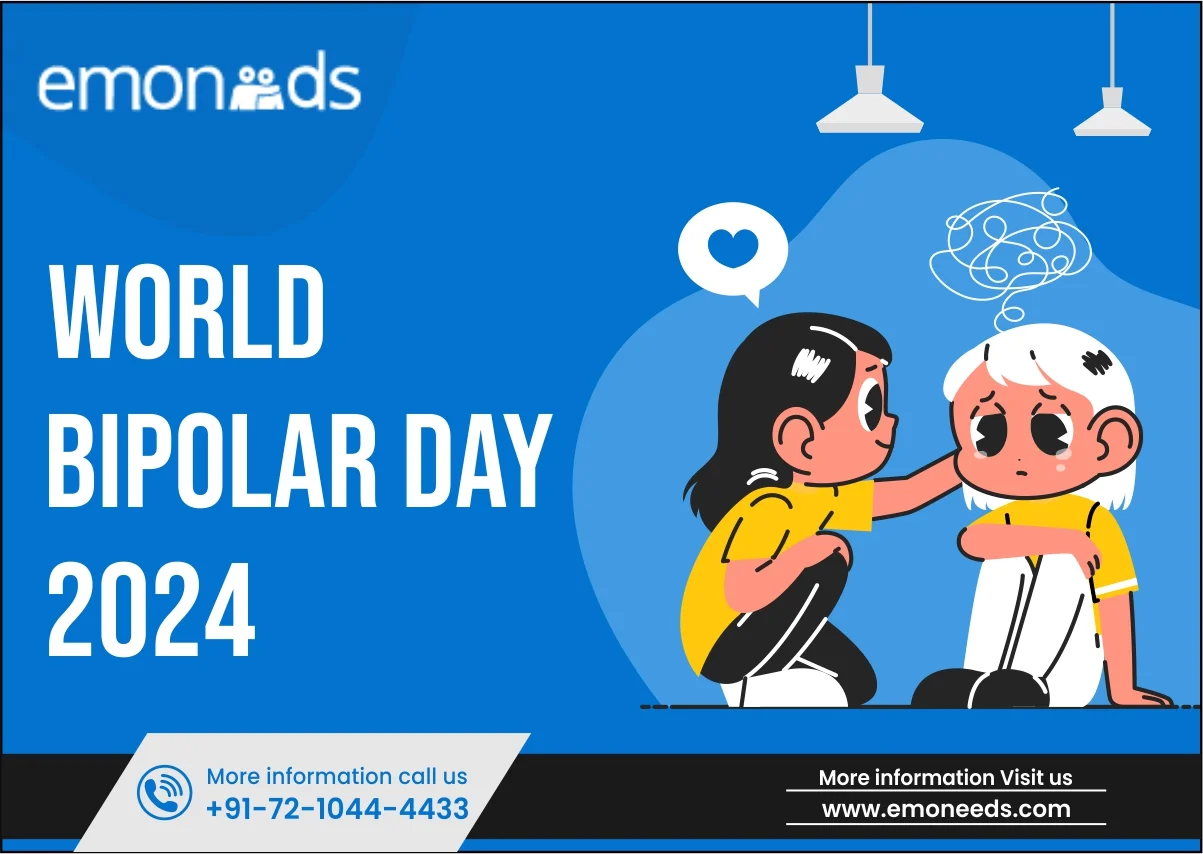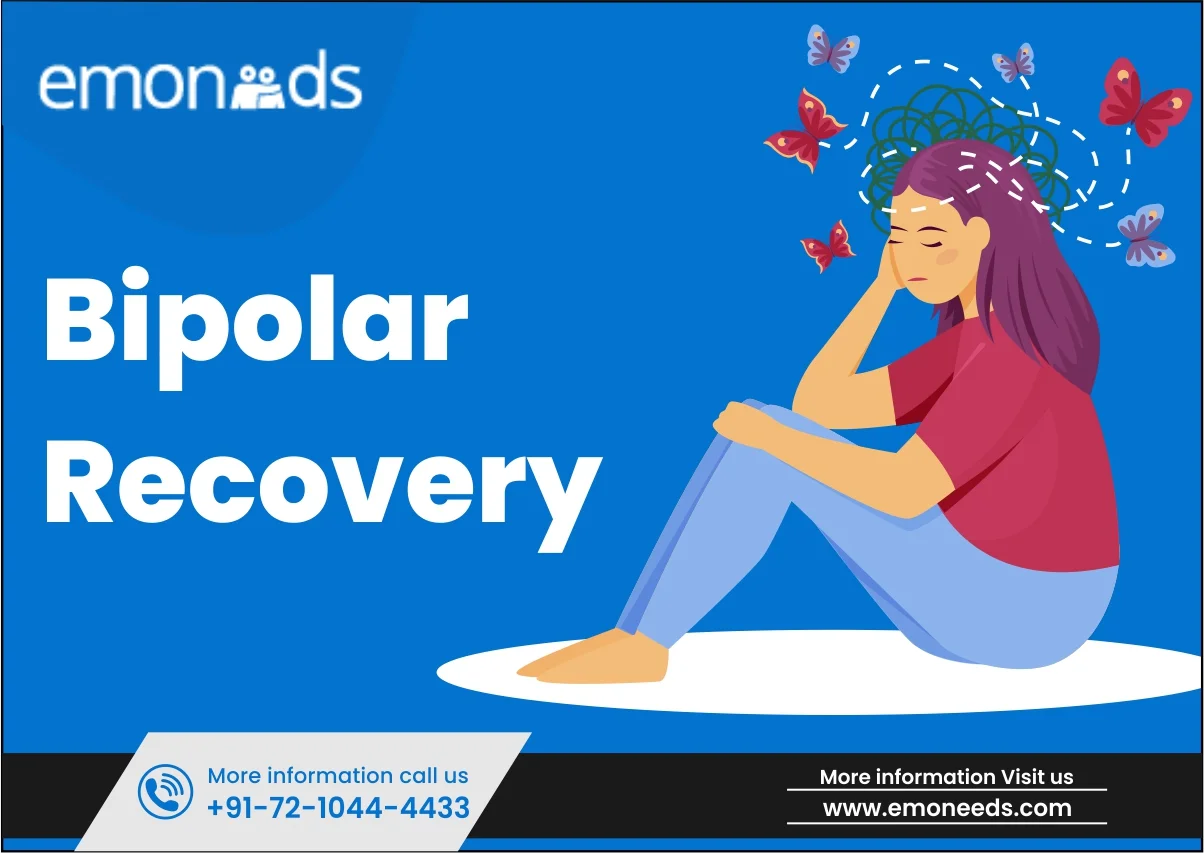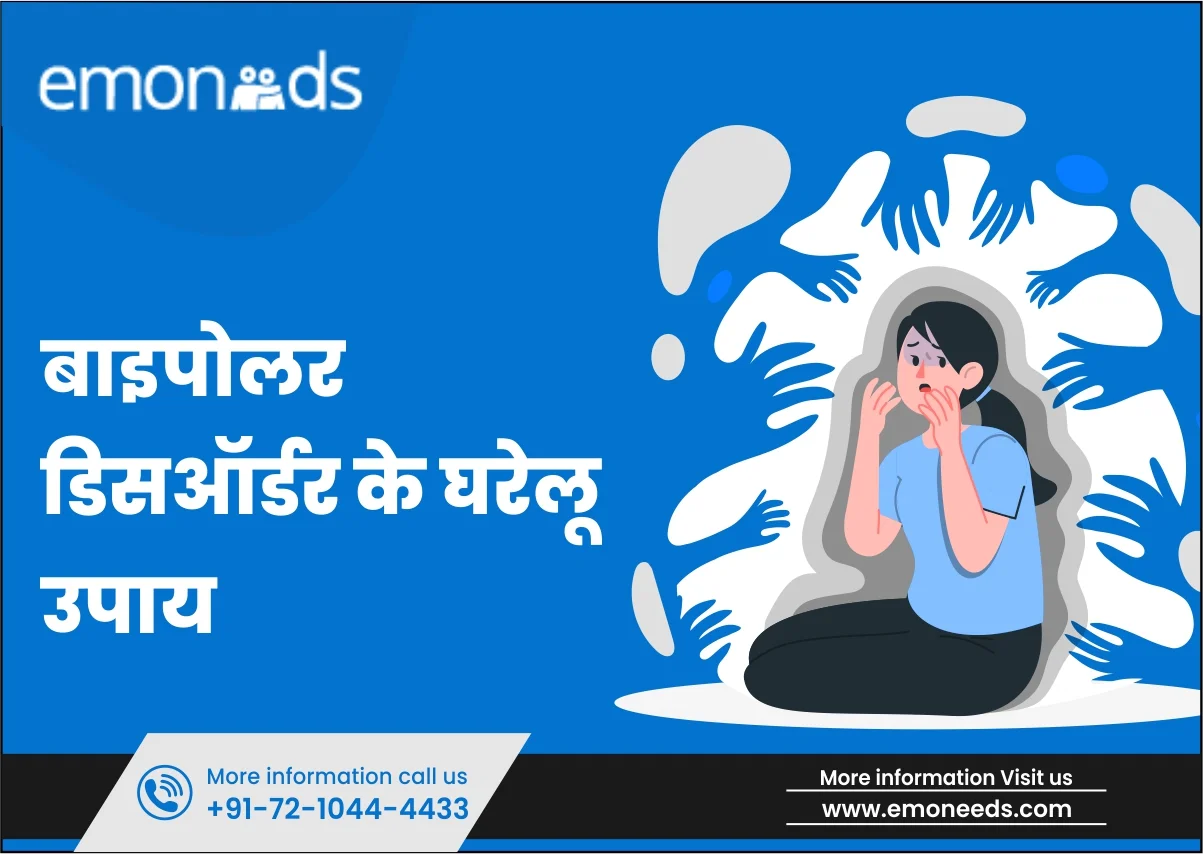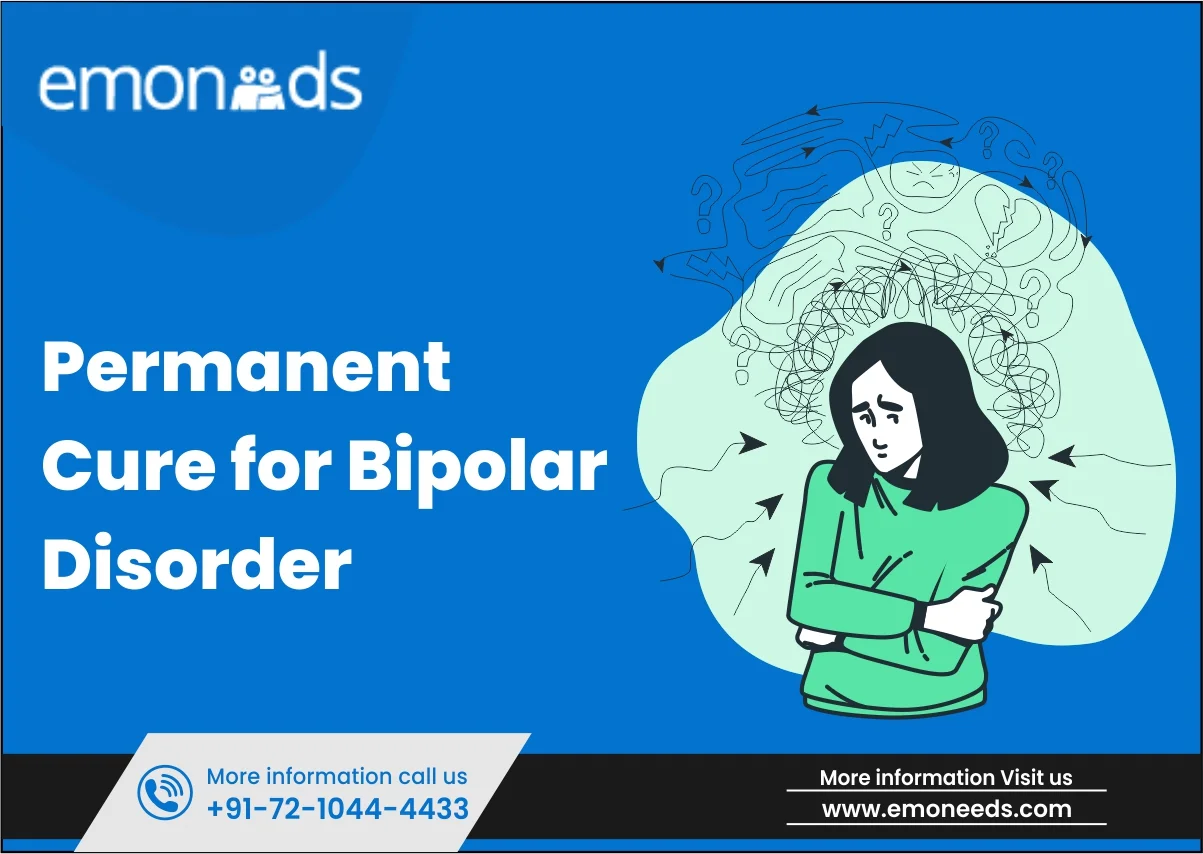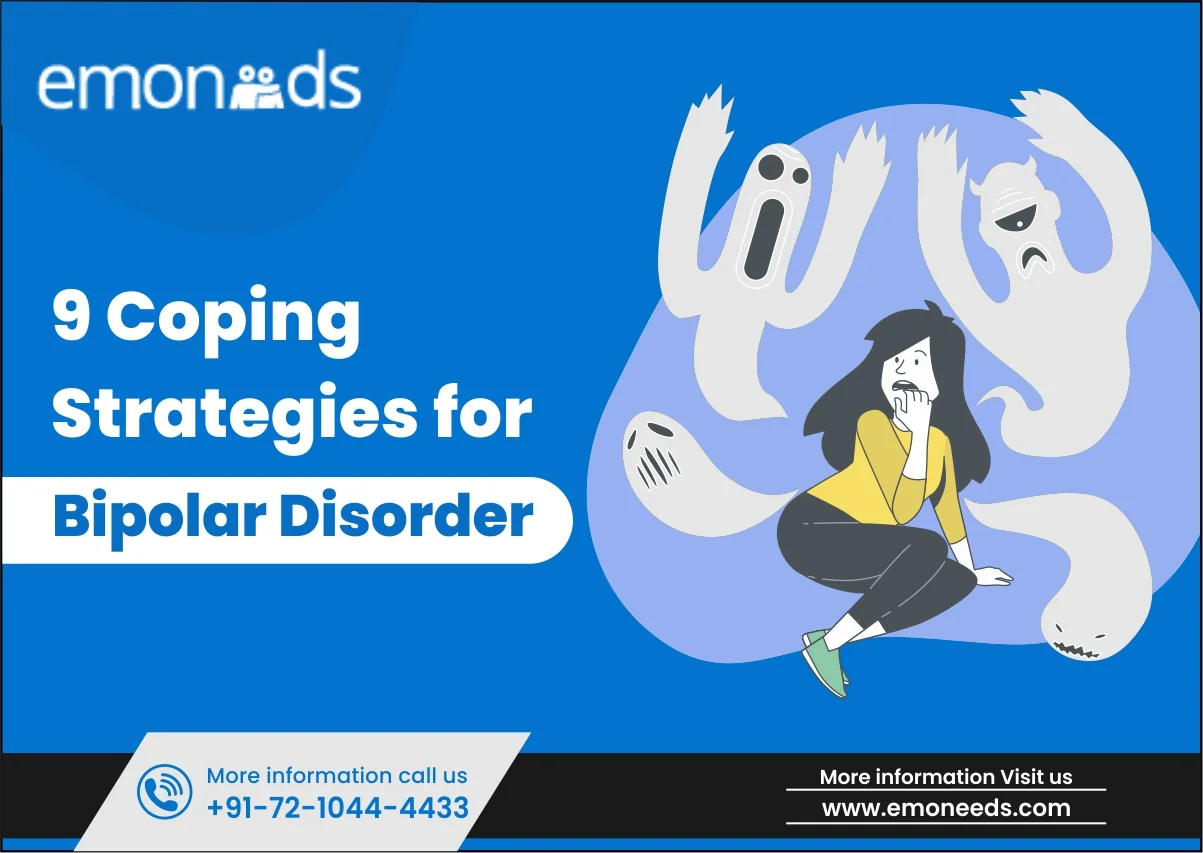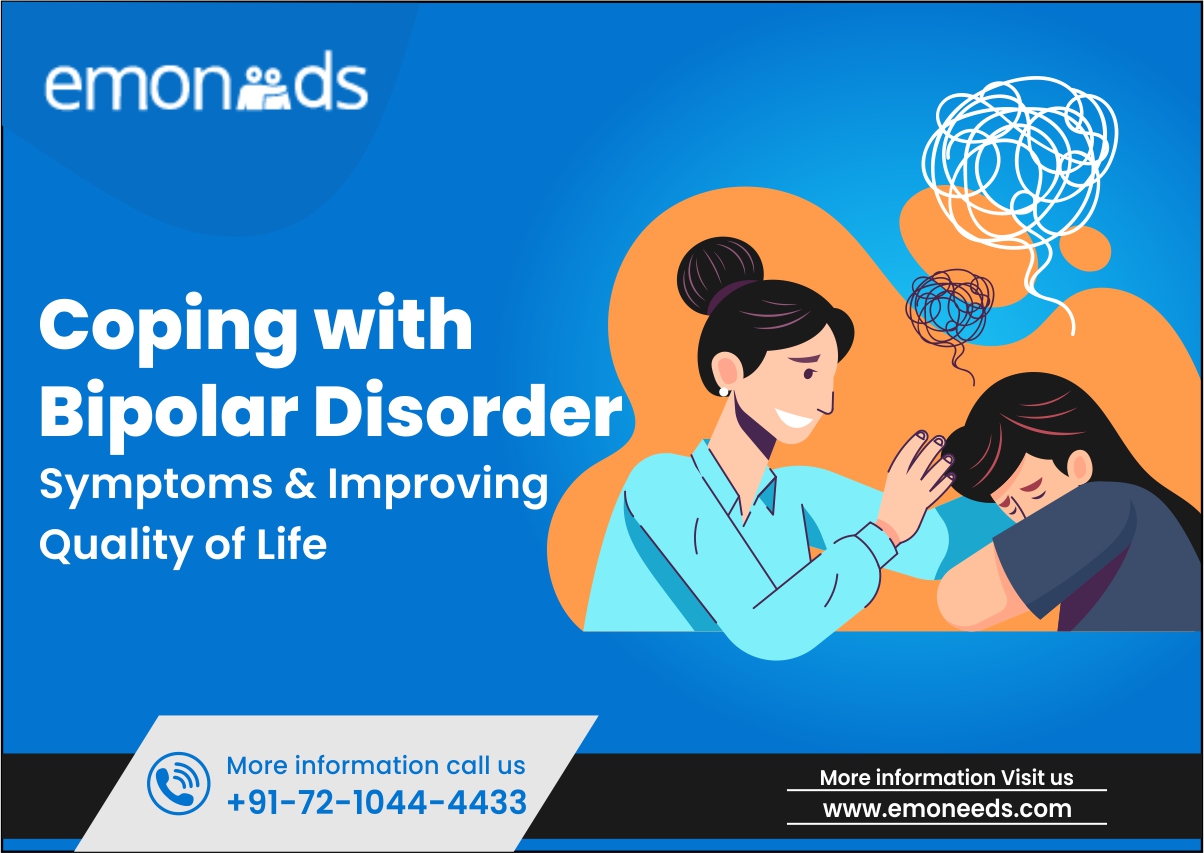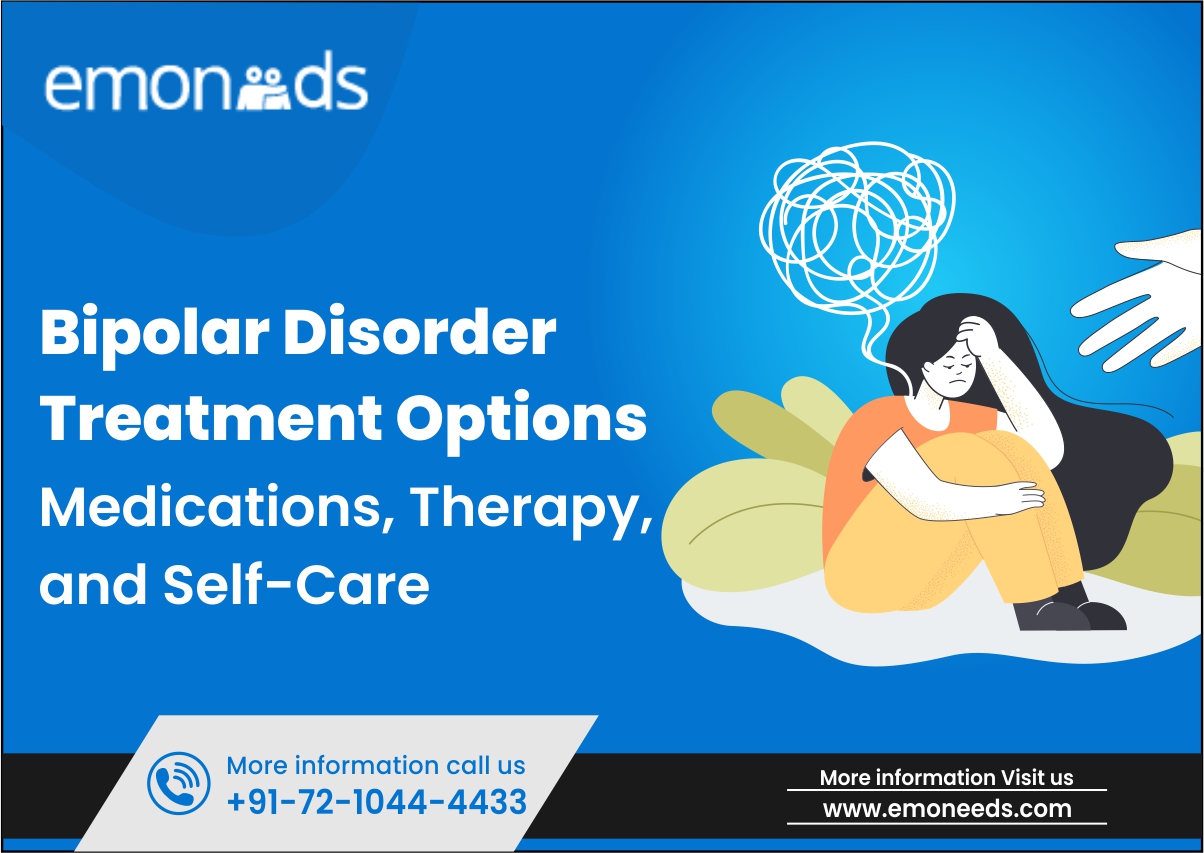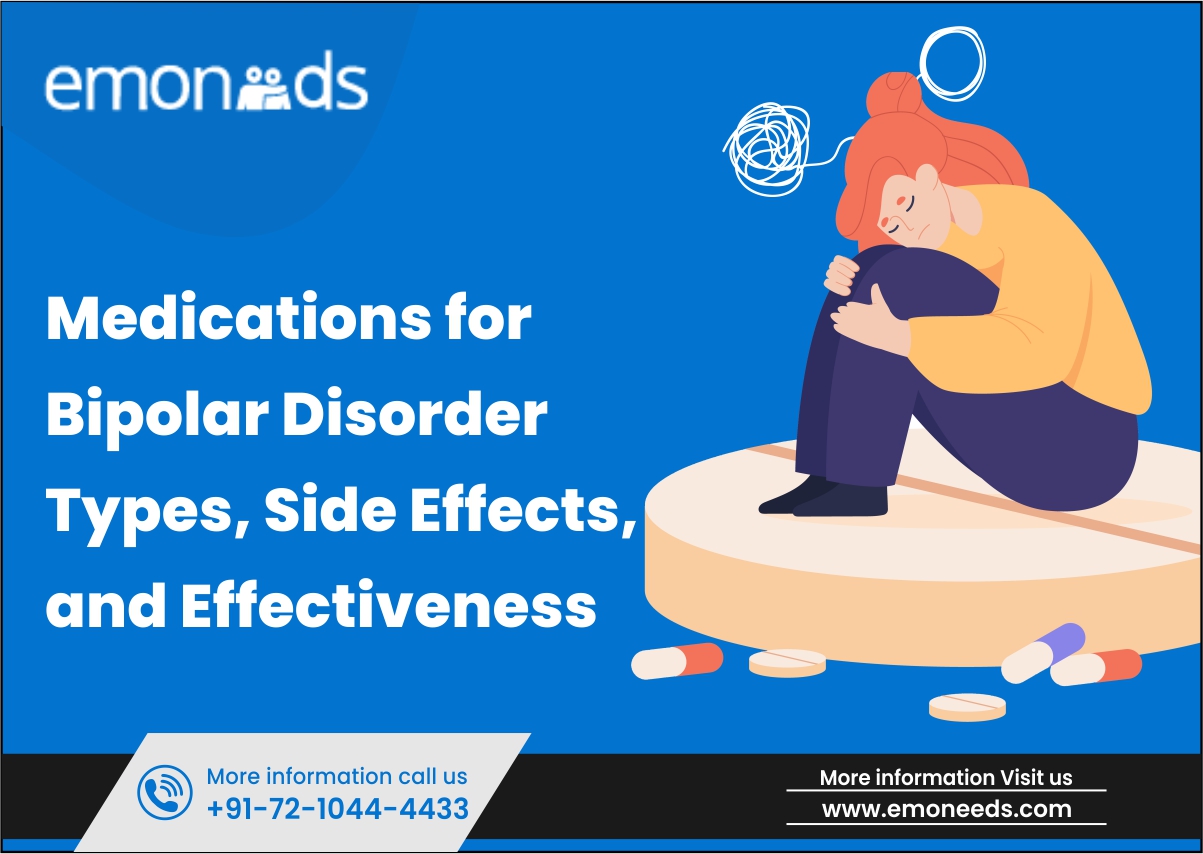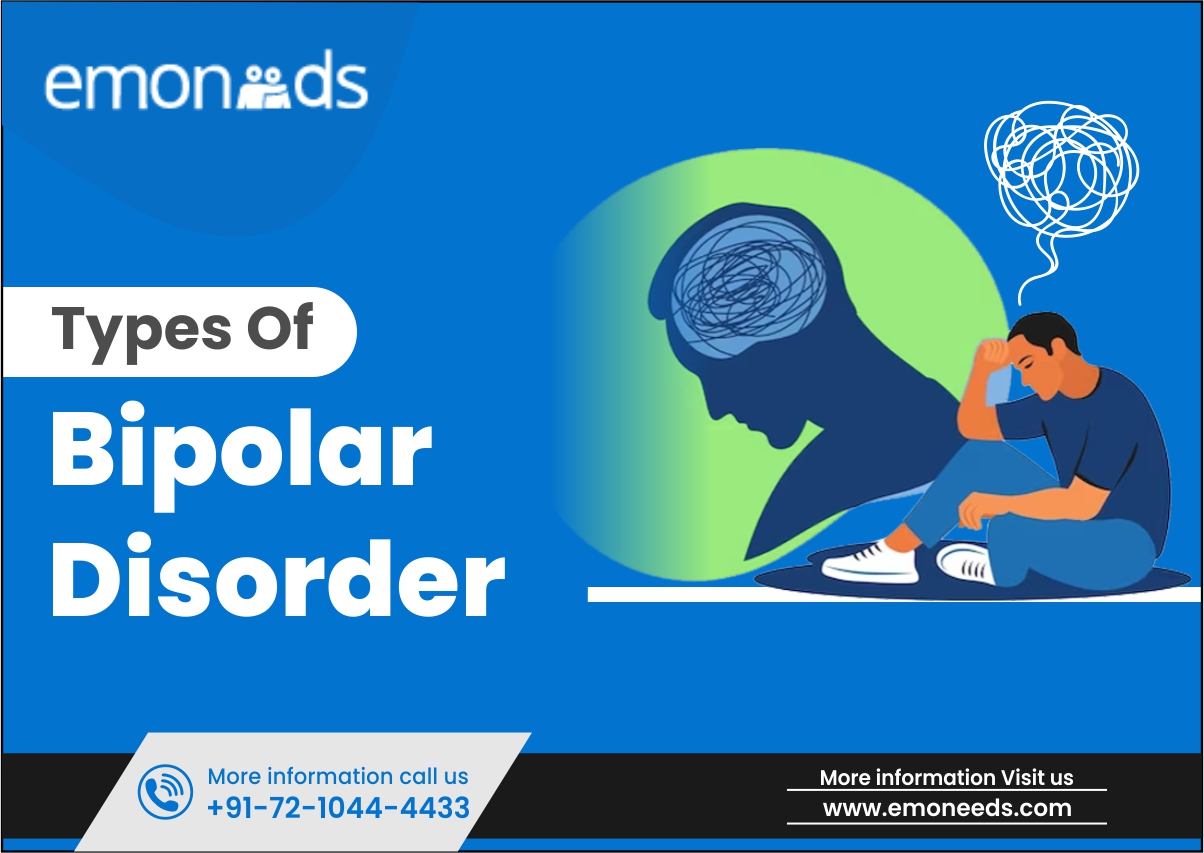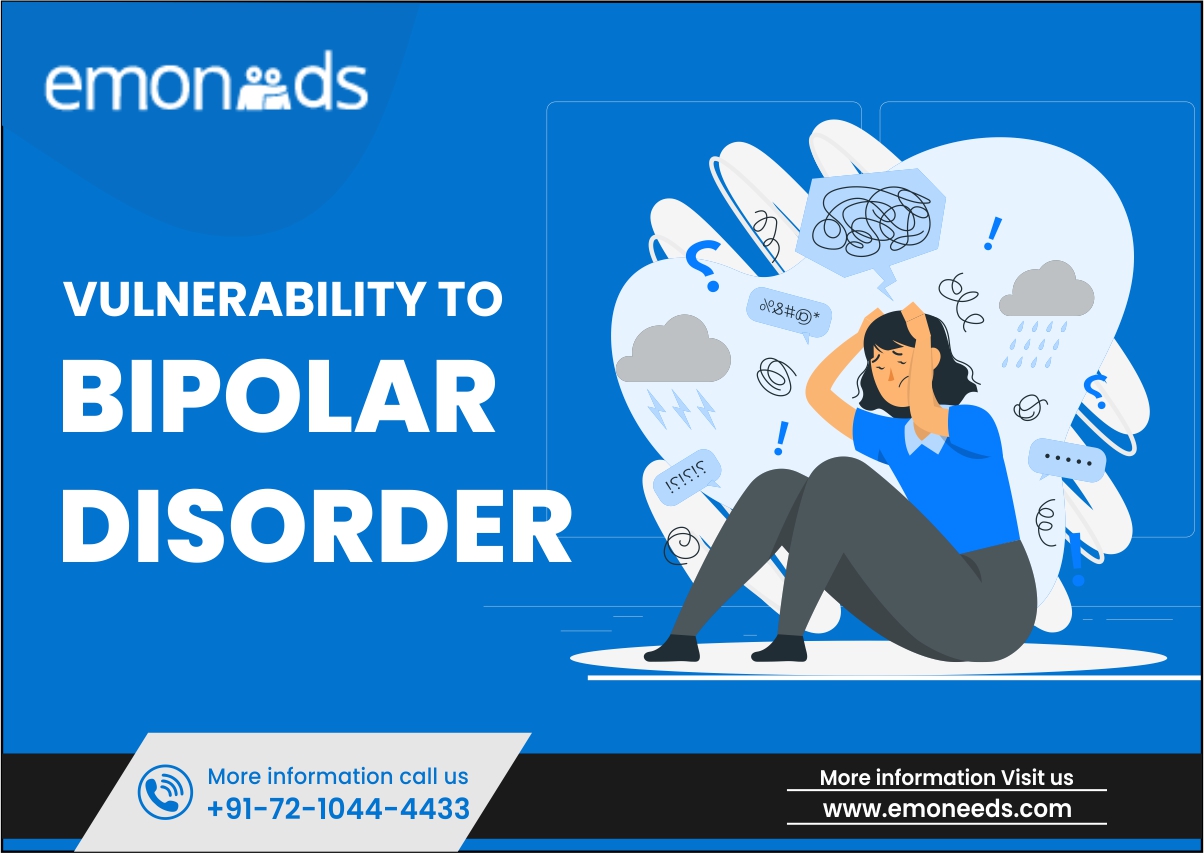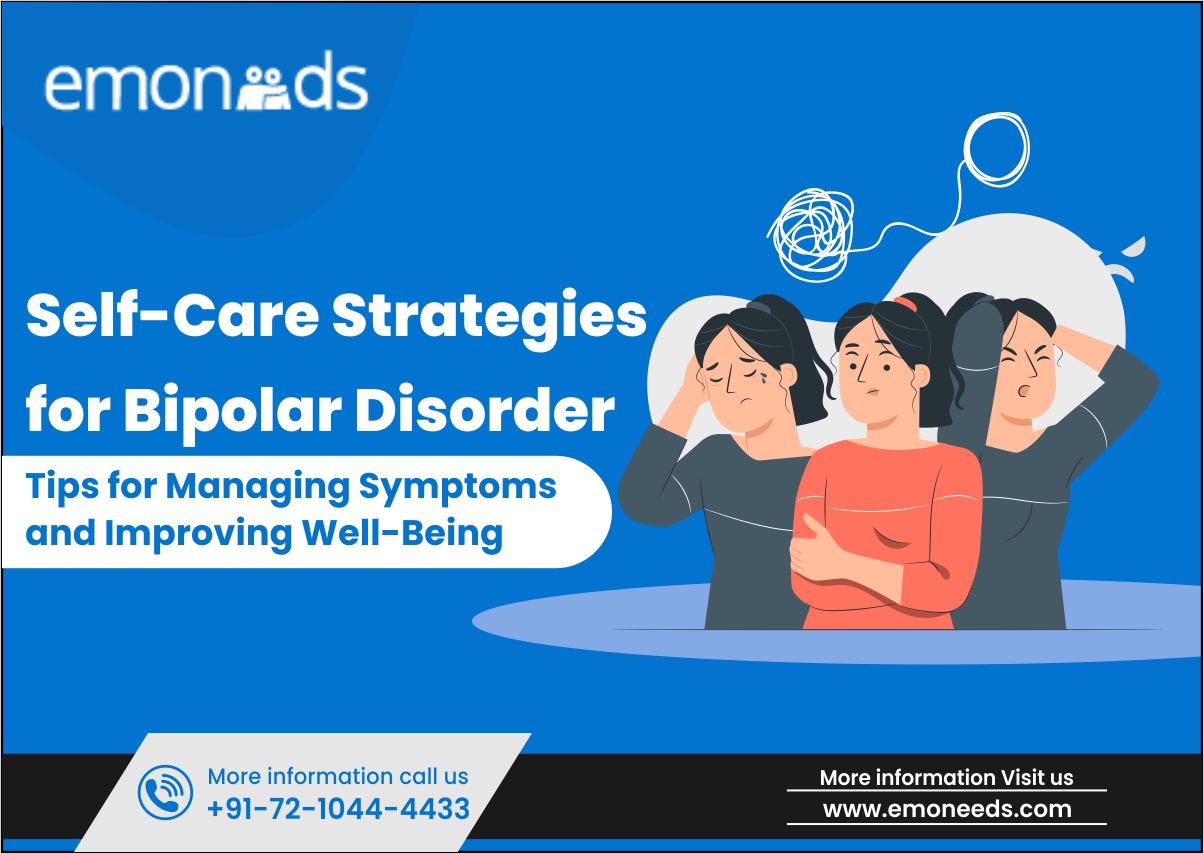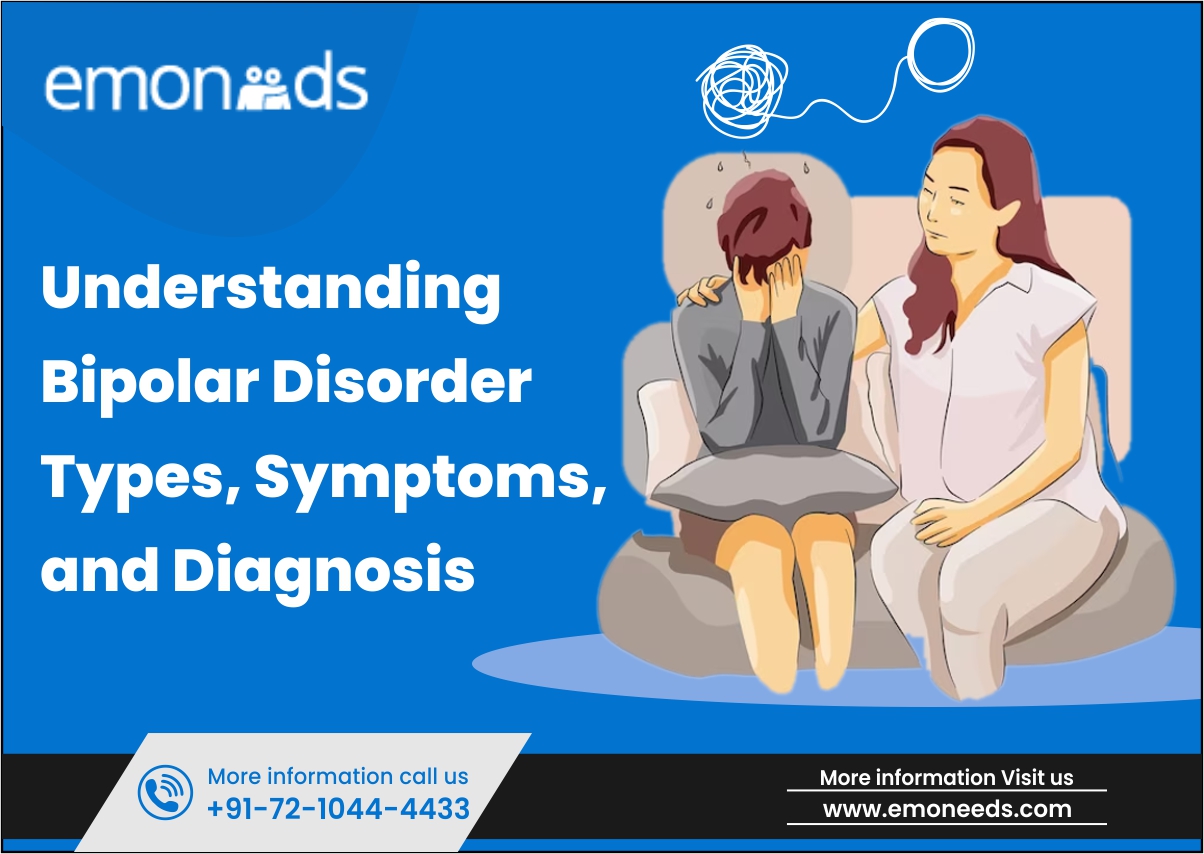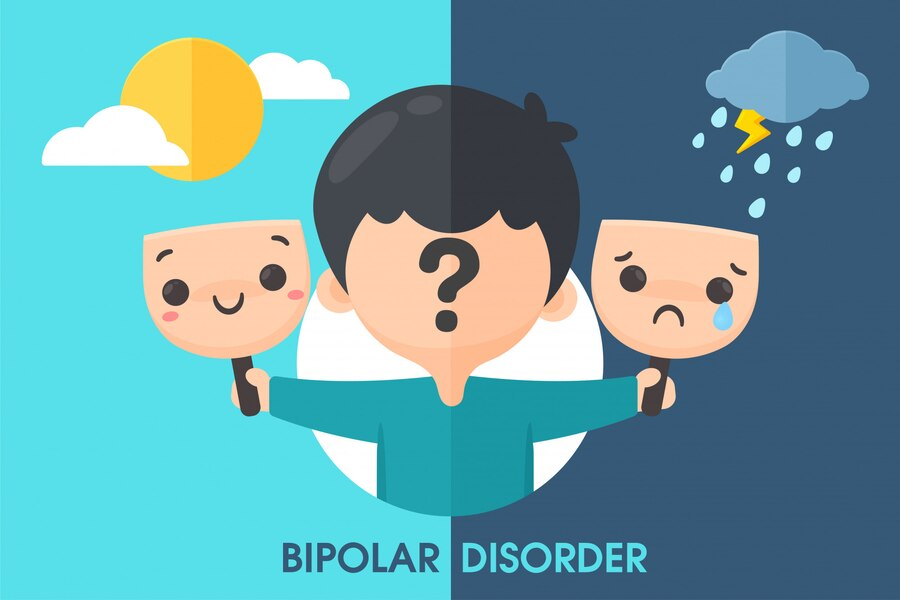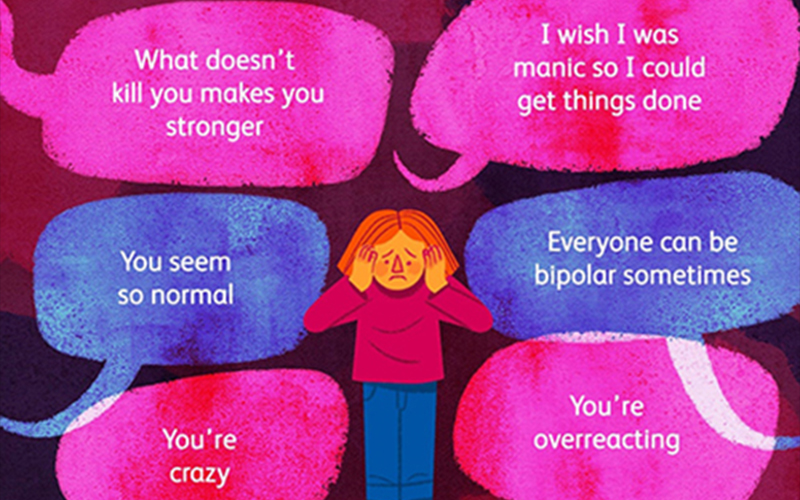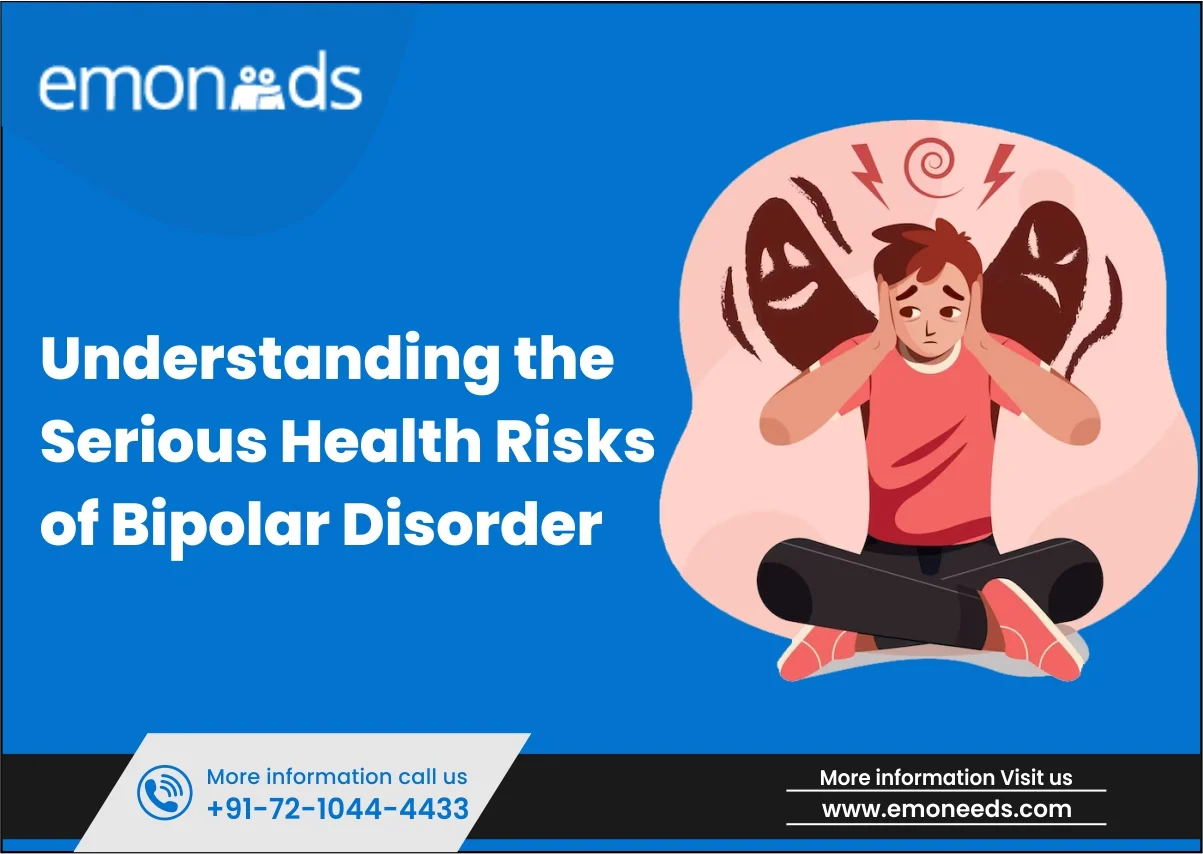
In a world where mental health battles often remain unseen, Bipolar Disorder (BD) emerges as a silent but impactful adversary. Did you know that individuals grappling with BD face more than an emotional rollercoaster?
Shockingly, recent studies hint at a disturbing reality – a compelling link between BD and early mortality. Beyond the surface of mood swings lies a deeper concern that demands exploration.
In this blog, we aim to unravel the intricate threads connecting Bipolar Disorder to premature death, shedding light on a topic that warrants attention and understanding. Join us in navigating this complex terrain with compassion and insight.
Understanding Bipolar Disorder
Bipolar Disorder, a mental health condition affecting millions, is marked by extreme mood swings between highs (mania) and lows (depression). It’s pivotal to recognize its symptoms. Manic episodes involving heightened energy, impulsivity, and euphoria, while depressive phases manifested as profound sadness and low energy. Diagnosis relies on observing such mood fluctuations, typically over a specified time frame, alongside assessing their impact on daily functioning. These mood swings significantly impact daily life and relationships, causing challenges in maintaining stability and predictability.
The prevalence of Bipolar Disorder is noteworthy, yet its diagnosis poses challenges due to varying symptom presentations and the stigma surrounding mental health. Understanding these facets is essential to provide support and foster a compassionate environment for individuals grappling with the complexities of Bipolar Disorder in their everyday lives.
Factors Contributing to Physical Illness and Early Death
Understanding the interplay between Bipolar Disorder and physical health unveils a complex, bidirectional relationship. Lifestyle factors exert a profound influence, with irregular sleep patterns, substance abuse, and dietary choices impacting overall well-being.
Substance Abuse
Individuals with BD may grapple with substance abuse as a means of coping with intense mood swings. This significantly elevates the risk of health complications and premature mortality.
Poor Sleep Patterns
Irregular sleep, a common challenge in BD, can detrimentally impact overall health. The associated disruptions in circadian rhythms contribute to increased susceptibility to various medical conditions.
Unhealthy Coping Mechanisms
The unique challenges posed by BD can lead individuals to adopt unhealthy coping mechanisms. From self-medicating to engaging in risky behaviors, these choices can exacerbate existing health issues.
These elements, often prevalent among individuals with Bipolar Disorder, contribute to a heightened risk of chronic conditions like cardiovascular diseases and diabetes. Additionally, challenges in adhering to prescribed medications further amplify these health complications. Striking a delicate balance between managing Bipolar Disorder and mitigating physical health risks becomes imperative.
Suicide and its Role in Premature Death
Exploring a darker aspect, Bipolar Disorder brings an increased risk of suicide, contributing to premature deaths. The reasons behind this tragic outcome often tie back to the intense emotional struggles linked with the disorder. To address this, prioritizing mental health support and suicide prevention is crucial. We need open conversations, understanding, and accessible resources to lighten the burden for those battling Bipolar Disorder. By fostering a compassionate environment, we can collectively work towards offering hope and support to those confronting these difficult challenges.
Mental Health Stigma and Healthcare Disparities
Living with Bipolar Disorder can be tough due to the stigma around mental health. This stigma often stops people from getting the right care for their condition. It means delays in diagnosis and support, making things harder for those with Bipolar Disorder. Healthcare disparities add to the problem, making it difficult for everyone to access proper treatment. These disparities, influenced by biases and limited resources, sadly lead to higher mortality rates for people with Bipolar Disorder. We need to fight against the stigma, make mental health care more accessible, and ensure everyone gets the support they need to live better with Bipolar Disorder.
Research Findings on Mortality Rates
Numerous studies have consistently indicated a concerning link between this mental health condition and premature death. Statistics paint a vivid picture, showcasing elevated mortality rates compared to the general population. Patterns observed underscore the multifaceted nature of this issue, with increased vulnerability to conditions like cardiovascular diseases and other health complications. These insights shed light on the urgent need for a comprehensive understanding of the challenges faced by those with Bipolar Disorder, urging a collective effort to address the factors contributing to premature mortality and improve overall health outcomes in this population.
Preventive Measures for Bipolar Disorder
Recognizing the signs and implementing preventive strategies play a pivotal role in managing Bipolar Disorder (BD). Consider the following approaches:
- Regular Mental Health Check-ups: Periodic mental health assessments can aid in early detection, allowing for timely intervention.
- Healthy Lifestyle Choices: Encouraging a balanced lifestyle, including regular exercise, a nutritious diet, and sufficient sleep, contributes to overall well-being and may help mitigate BD risks.
- Stress Management Techniques: Equipping individuals with effective stress management tools, such as mindfulness and relaxation exercises, can be beneficial in preventing mood swings.
Interventions and Support
Follow these key interventions and support strategies to pave the way for a healthier journey when dealing with Bipolar Disorder (BD):
- Early Detection and Diagnosis: Timely identification of BD symptoms is critical. Encouraging open communication with healthcare professionals facilitates early diagnosis and intervention.
- Appropriate Medication and Therapy: Tailored treatment plans involving medication and therapy help manage BD symptoms effectively. Ensuring access to these resources is essential for sustained well-being.
- Education and Awareness: Promoting awareness about BD within communities reduces stigma and fosters understanding. Education empowers both individuals with BD and those around them.
The Role of Social Support
Social support plays a pivotal role in the well-being of individuals with Bipolar Disorder. Building a strong network of understanding friends, family, and mental health professionals provides crucial assistance in navigating the challenges associated with BD. In the context of early mortality, a robust social support system can be a lifeline, offering encouragement, understanding, and practical assistance in managing both mental and physical health.
In addition to social support, seeking professional help is a vital component of managing Bipolar Disorder. Trained mental health professionals can provide personalized guidance, therapeutic interventions, and medication management to enhance overall well-being. If you or someone you know is grappling with Bipolar Disorder, consider reaching out to a mental health professional for specialized support and assistance. Taking this step is a proactive move towards better mental health and improved quality of life.
Conclusion
Our exploration into the link between Bipolar Disorder and early mortality underscores the need for a holistic approach to mental health. By addressing lifestyle factors, reducing stigma, and supporting medication adherence, we can pave the way for a healthier future. As we wrap up, consider taking a proactive step towards mental well-being.
Emoneeds is a professional online mental health platform that offers accessible psychiatric counseling and therapy services. Let’s collectively foster awareness, break down stigma, and create a supportive environment. Visit Emoneeds to be a part of this transformative journey towards improved mental health and well-being.
